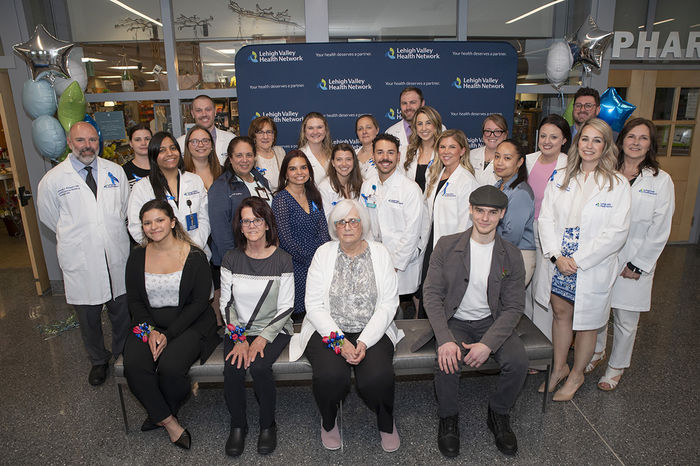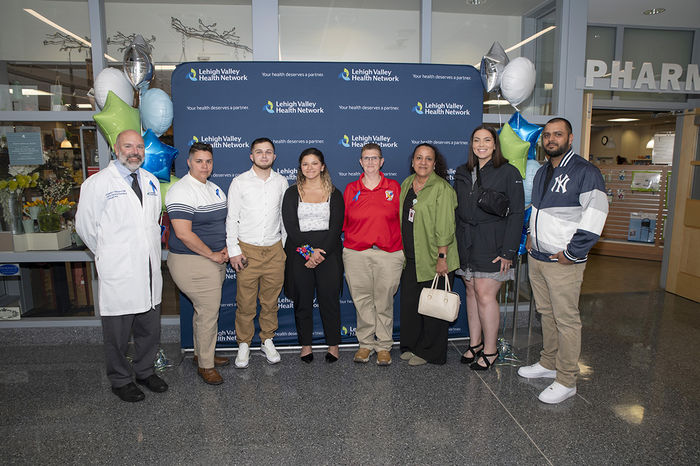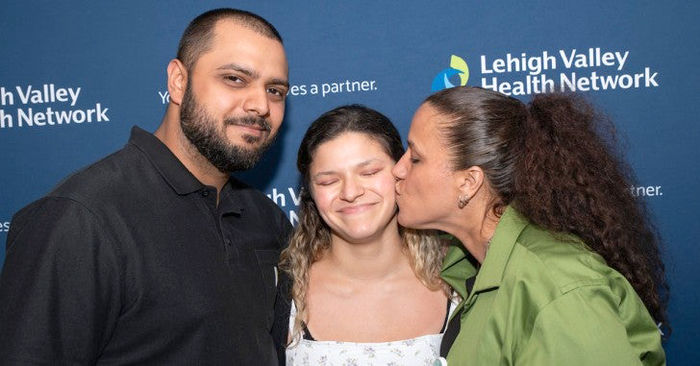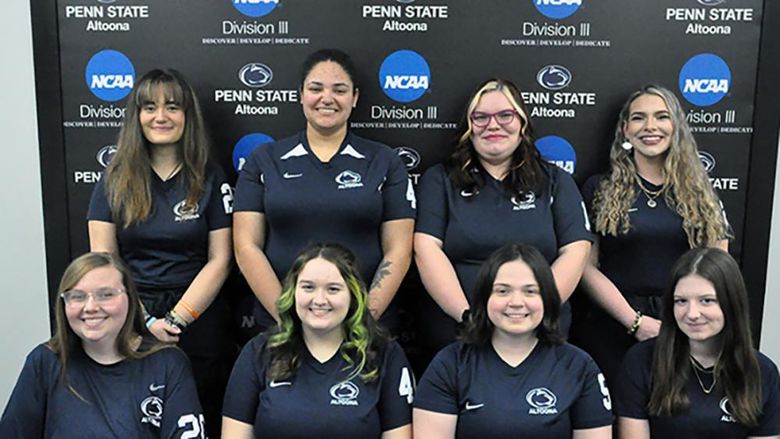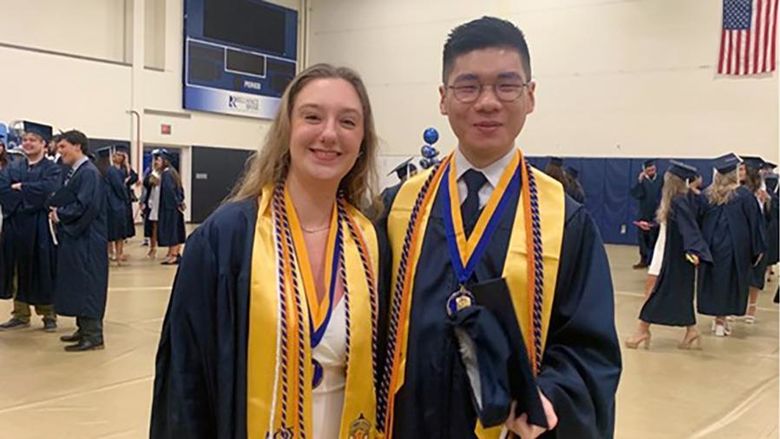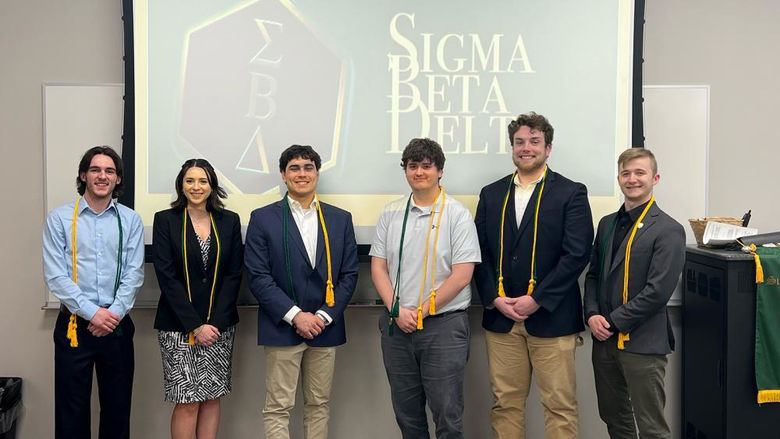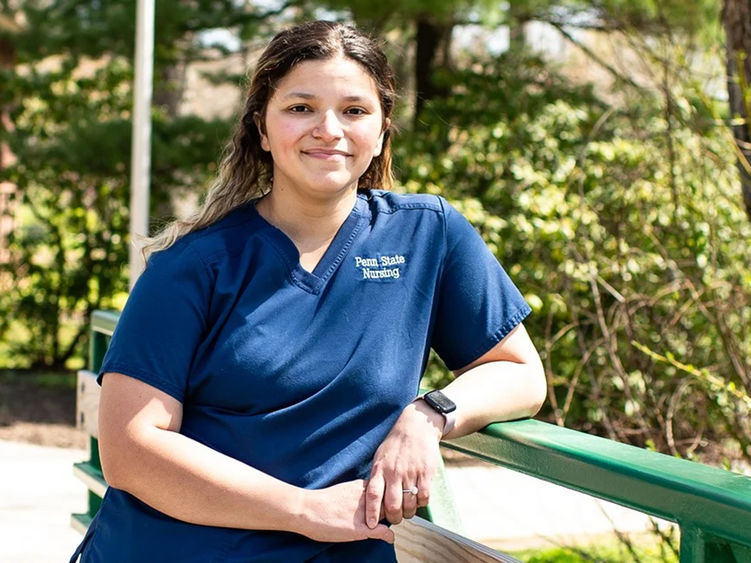
Nursing student Kim Camacho is using her lived experience as a trauma injury survivor to become the best health care provider possible.
ALTOONA, Pa. — When Kim Camacho began her studies in nursing at Penn State Altoona, she had no idea how personal her chosen profession would become.
The 24-year-old recalls finding enjoyment in caring for others even in her childhood when she helped look after her great-aunt who had developmental and mobility problems. In high school, she loved her anatomy classes and volunteered to work with students with disabilities. She went on to earn a degree in exercise science from another college and work in home health care and in two hospitals in the Wilkes-Barre, Pennsylvania, region.
As she did so, Camacho observed the relationship between nurses and patients, struck by the closeness that often developed, she said. That type of connection was something she wanted for herself and was a factor in her decision to enroll in the Ross and Carol Nese College of Nursing Second Degree Program delivered at Penn State Altoona.
In May 2023, Camacho and her mother were on their way home from chaperoning Liberty High School’s senior prom. Her mom, an assistant principal at the Bethlehem, Pennsylvania, school, was behind the wheel.
Camacho fell asleep. The next thing she recalls was waking up in a crashed car, her mother unconscious beside her. She remembers using her smartwatch to call 911 and being pulled from the wreckage.
She would later learn that her car had crossed the center line and collided with a box truck.
Camacho was taken to Lehigh Valley Hospital-Pocono where she was stabilized, then airlifted to Lehigh Valley Hospital (LVH)-Muhlenberg. Her injuries were extensive: spinal, rib, and toe fractures, a lacerated spleen and kidney, pancreas and bowel injuries, and a collapsed lung.
Camacho was admitted to the hospital on May 21 and wasn’t discharged until July 5. During that time, she was intubated and needed a feeding tube. A stent was put in her pancreas. A chest tube was inserted to help drain fluid from her body. She underwent several operations and had part of her intestine and her entire spleen removed.
While in the hospital, Camacho said, she was constantly asking her doctor if she’d be able to return to college for the fall semester.
“I’m a very determined person, and I just wanted to get back to normal," she said. "I used going back to school as motivation to get up and moving, even when I was in pain or just didn’t want to.”
And it worked. Camacho did return to Penn State Altoona this past fall — resolute and purposeful.
“When I started, I had a lot of challenges with my health, but I think that getting back into my routine, and being in an environment where I could focus on something I am passionate about made me feel more like myself than anything else could at the time," said Camacho.
That was true both in and out of the classroom. On top of being a full-time student, Camacho works at a step-down unit for stroke and seizure patients at a medical facility in Altoona. She stepped back into that job with an even deeper, more personal understanding of what patients need and want, she said.
“Before my accident, I provided care with the standard of how I would want my family members to be treated. Now, I think of the amazing nurses and techs who helped me through my hospital stay, and I remember little things meaning so much, like getting my hair braided or small talk," she said. "Before, I used to do the little things because I thought my patients would appreciate them. Now, I know my patients appreciate them.”
Camacho said everyone who helped care for her at LVH-Muhlenberg was instrumental in her recovery. She said they were invested in her not only as a patient, but as a person. She felt listened to and encouraged by doctors, nurses, and techs alike.
“I think that the experience of being in the hospital for so long makes me more empathetic to my patients’ situations, and it makes me want to do everything I possibly can to make sure they are comfortable and feel supported during their hospital stay," she said.
Camacho was one of four former LVH-Muhlenberg trauma patients who were honored with a ceremony on May 15, which is National Trauma Survivors Day.
The LVH-Muhlenberg Trauma Survivors Network coordinates a ceremony annually to recognize and celebrate the strength and resilience of former patients. The event also reunites those patients with members of their care team, including first responders, nurses, doctors and physical therapists.
“We have found that the care teams love reuniting with the patients and seeing how far they have come from their injuries,” said Bree Harrison, trauma program manager at LVH-Muhlenberg. “But the trauma survivors seem to really enjoy reconnecting with the staff, as well.”
Camacho said she saw lots of familiar faces at the ceremony but was also introduced to providers she had no memory of. She was grateful to have the chance to thank all who were involved in her care.
But what she appreciated most, she said, was the chance to celebrate her journey, especially with others who had been through similar circumstances.
“When I was in the hospital, and even when I was back home, I did not realize how much I had gone through or how far I had come in such little time," she said. "I got to meet other survivors and hear their stories, and we were able to celebrate overcoming our traumas together. It was very uplifting and empowering.”
Camacho’s hardship did give her clarity on one thing: She decided that she wants to be an ICU nurse.
This summer she is doing an internship at — where else? — LVH-Muhlenberg. Following her graduation from Penn State Altoona, set for December, she will be working in the same intensive care unit where she spent more than a month not so long ago.
“The tragic event that Kim experienced would have made it easy to abandon her dream of becoming a registered nurse,” said Suzanne Kuhn, director for undergraduate nursing education at Penn State Altoona. “To the contrary, she has demonstrated an even greater determination to pursue a career helping others. Her persistence and dedication are truly commendable.”
Camacho said she always believed she would be a good nurse before the accident, and she still believes it now, just more strongly. And when things are tough with classes, work, or everyday life, she draws on her own strength. “When I feel that something is challenging or daunting, I tell myself that I got through the accident, so I can get through anything. I’m excited for the future.”
